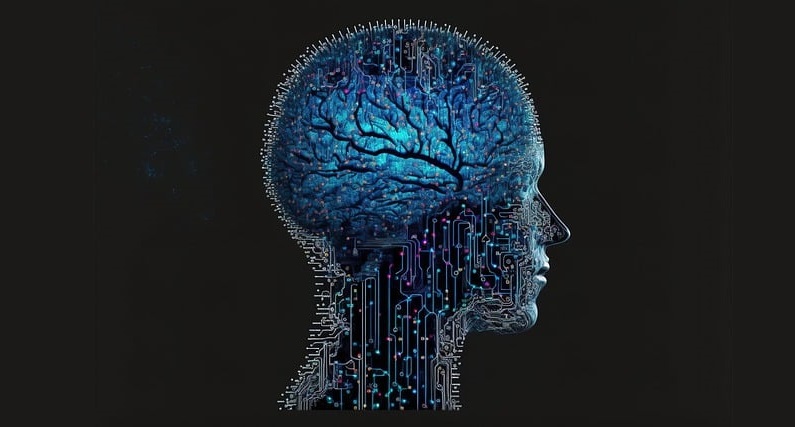As AI systems become increasingly integrated into our daily lives, ensuring their robustness in the face of adversarial attacks, system changes, and environmental variations becomes imperative. AI robustness refers to the ability of an AI system to maintain its performance under such challenging circumstances. This article examines the intersection of machine learning and systems engineering in the context of AI robustness, highlighting the crucial role they play in building adaptive and resilient AI systems.
Definition of AI Robustness and Its Importance
Before delving into the specifics, it is essential to understand AI robustness. It refers to the capability of an AI system to maintain its performance despite adversarial attacks, system changes, or environmental variations. The significance of AI robustness lies in its ability to ensure consistent and reliable AI performance, even in the face of real-world challenges.
The intersection of machine learning and systems engineering
The foundation of AI robustness lies at the crossroads of machine learning and systems engineering. Machine learning equips AI systems with the ability to learn, adapt, and make decisions, while systems engineering provides the principles and methodologies for designing and managing robust systems. Machine learning enables AI systems to process and analyze large amounts of data, allowing them to learn from patterns and make accurate predictions or decisions. On the other hand, systems engineering focuses on designing and managing complex systems through principles such as modularity, adaptability, redundancy, and fault tolerance.
Adversarial attacks and AI robustness
One of the key challenges in AI robustness is adversarial attacks. Adversarial attacks involve manipulating the input data to mislead or confuse an AI system. By subtly modifying the input, attackers can cause AI models to misclassify, leading to potentially severe consequences in critical systems such as autonomous vehicles or healthcare diagnostics. Understanding adversarial attacks is crucial to comprehending the need for AI robustness. These attacks exploit vulnerabilities in AI models, making it imperative to devise countermeasures to maintain performance even in the presence of adversarial inputs.
Leveraging systems engineering principles for adversarial attack resistance
Systems engineering principles provide a robust framework for designing AI systems that can resist adversarial attacks. Redundancy involves incorporating duplicate components or multiple models to minimize the effect of adversarial manipulation. Fault tolerance enables AI systems to detect and recover from potential attacks, ensuring continued performance. By combining machine learning techniques with systems engineering principles, AI systems can be designed to detect and discard adversarial inputs, improving resilience and maintaining accurate predictions and decisions.
System changes and AI Robustness
Apart from adversarial attacks, AI systems are also susceptible to changes in their operating environment or the system itself. Even minor alterations in the input distribution, hardware/software configuration, or data sources can affect AI system performance, resulting in potential failures. To address these challenges, systems engineering offers principles like adaptability and modularity. Adaptability involves designing AI systems that can dynamically adjust to changes, ensuring continued performance. Modularity enables AI systems to be easily modified or upgraded, facilitating smooth transitions and minimizing disruptions.
Designing AI systems to cope with system changes
Systems engineering principles can be applied to design AI systems that can effectively cope with system changes. By employing adaptive algorithms and techniques, AI systems can learn and update themselves to efficiently handle variations in the operating environment or system conditions. Modularity allows individual components of an AI system to be updated or replaced without affecting the overall system. This approach enables easy integration of new data or algorithms, ensuring the adaptability of an AI system to changing circumstances.
The holistic approach to AI development
The intersection of machine learning and systems engineering in AI robustness emphasizes the need for a holistic approach to AI development. Focusing on both intelligence and robustness ensures that AI systems not only perform well but can also withstand adversities and changes in the real world. Taking a holistic approach requires collaboration between machine learning experts and systems engineers to simultaneously optimize AI algorithms and design resilient systems. This approach acknowledges that AI systems are not just black boxes but rather complex, interdependent systems that require careful management and attention to ensure reliable and robust performance.
Deep understanding of machine learning and systems engineering
Building robust AI systems necessitates a deep understanding of both machine learning and systems engineering. Machine learning expertise provides the necessary tools and techniques to build intelligent systems, while systems engineering expertise guides the design, implementation, and management of these systems. Recognizing the interplay between the two fields is crucial for constructing AI systems that are both intelligent and robust. Knowledge of machine learning algorithms, model architecture, training methodologies, as well as systems engineering principles like fault tolerance, redundancy, and adaptability, are key to developing AI systems that can effectively address challenges and maintain performance.
Advancing AI through the Intersection of Machine Learning and Systems Engineering
Appreciating the crucial intersection of machine learning and systems engineering in AI robustness also holds broader implications for the advancement of AI. By integrating machine learning techniques with systems engineering principles, researchers can explore new possibilities and take AI development to new heights. Efforts in this direction can lead to innovations in AI system design, enhanced resistance against adversarial attacks, improved adaptability to changing conditions, and the development of more reliable and trustworthy AI systems overall.
AI robustness is vital for ensuring consistent and reliable performance in AI systems. The intersection of machine learning and systems engineering offers a powerful framework for building adaptive, resilient, and robust AI systems. By actively considering the principles and expertise from both fields, researchers and practitioners can successfully address challenges such as adversarial attacks and system changes, paving the way for significant advancements in the broader field of AI. Continued collaboration and research in this intersection can further propel the development of intelligent, robust AI systems that excel in real-world scenarios.

